Safework Health recently carried out Wastewater Surveillance Testing at a mine site in New South Wales.
Read more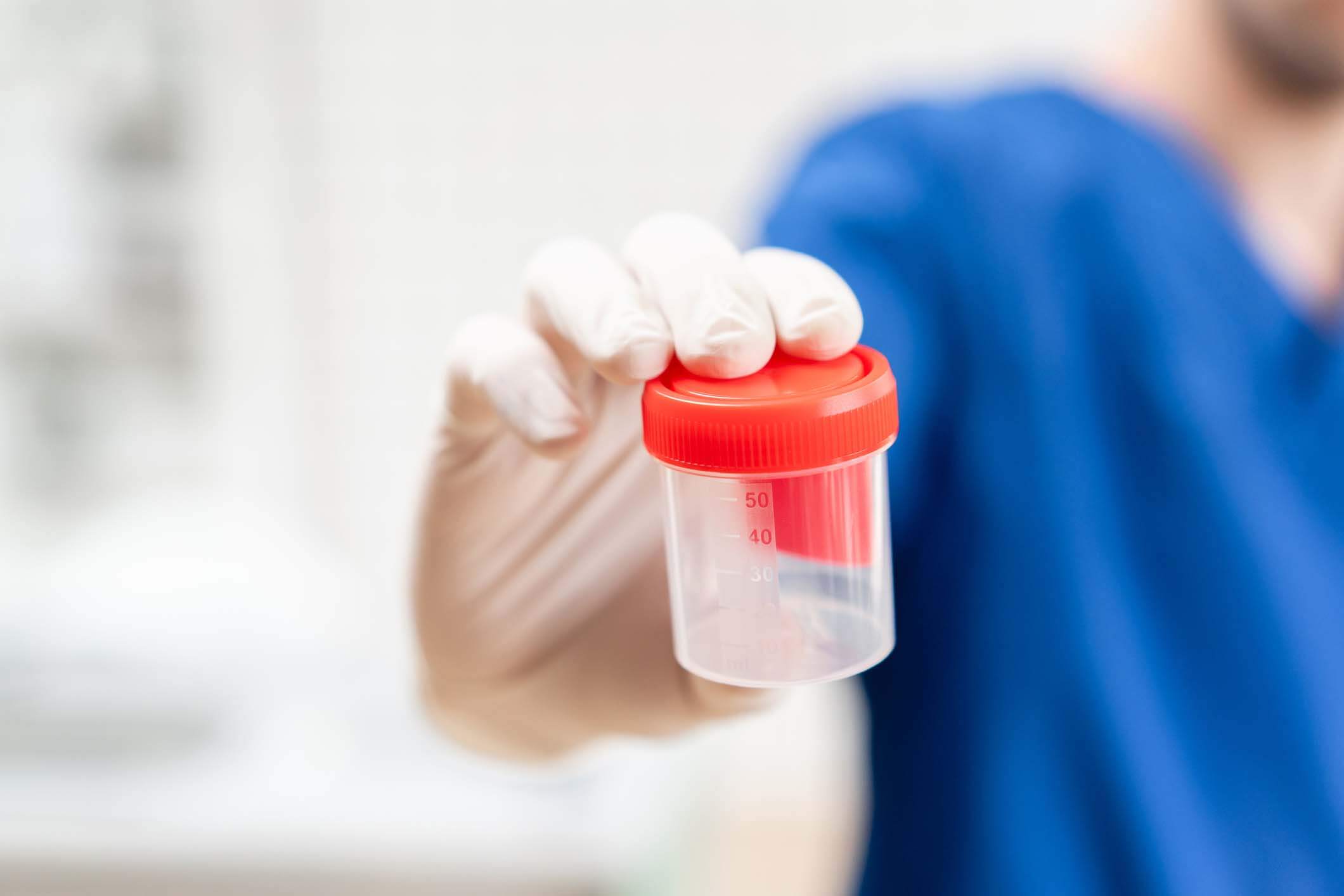
Drug Testing Pre Employment
Drug testing pre-employment is an important step for many businesses in Australia to ensure a safe and productive workplace. Employers rely on these tests to identify potential substance abuse issues before hiring a new employee. Failing a pre-employment drug test in Australia can impact an individual’s chances of securing a job, especially in industries where safety is paramount.
Understanding why these tests are required, how they work and how the results impact employment is important for both employee and employers to be able to implement and maintain a healthy work environment.
Understanding Pre-Employment Drug and Alcohol Testing
Pre-employment drug and alcohol testing is a standard process in many Australian industries, including construction, mining, and transport. Employers use these tests to ensure candidates are not under the influence of substances that could impair their ability to perform their duties safely. When an applicant undergoes an instant drug and alcohol test as part of the hiring process, they are typically screened for common substances such as cannabis, amphetamines, cocaine, opiates, and alcohol.
What Happens if an Applicant Fails a Pre-Employment Drug Test in Australia?
If a candidate ends up failing a pre-employment drug test in Australia, the consequences can vary depending on the company’s policies. Generally, the employer will withdraw the job offer. In safety-sensitive industries, this practice is common to reduce the risk of workplace accidents and ensure compliance with occupational health and safety regulations. Employers may also recommend drug and alcohol training for candidates who fail the test and wish to reapply in the future.
Why Do Employers Conduct Drug Testing Pre Employment?
Employers implement drug testing pre-employment to protect their workforce and the integrity of their operations. Hiring employees who are free from substance abuse helps businesses avoid potential legal issues, maintain productivity, and reduce workplace incidents. Regular testing ensures that all employees are aware of the company’s stance on drug and alcohol use and understand the importance of a drug-free environment.

The Legal Implications of Failing a Pre-Employment Drug Test in Australia
Failing a pre-employment drug test in Australia can have legal implications, especially in regulated industries. Employers are required to comply with workplace safety laws and may be legally obligated to ensure their employees are not impaired by drugs or alcohol. Candidates who fail a drug test may find it difficult to challenge the outcome if the company’s testing procedures follow legal guidelines.
Employers who enforce pre-employment drug and alcohol testing must have clear policies in place. These policies should outline the testing procedures, consequences of a positive result, and opportunities for retesting or support, such as drug and alcohol training.
What Employees Should Know About Instant Drug and Alcohol Tests
An instant drug and alcohol test provides quick results, typically within minutes. These tests are often used in pre-employment screening because they help employers make timely hiring decisions. Candidates should know that instant tests are just as reliable as laboratory tests and can detect recent drug or alcohol use.
Before taking a pre-employment drug test, candidates should disclose any prescription medications or legitimate substances that could affect the results. Honesty during this process can help avoid misunderstandings and potential issues with the employer.
Steps to Take After Failing a Pre-Employment Drug Test in Australia
Failing a pre-employment drug test in Australia does not have to be the end of your career prospects. Here are some steps candidates can take to address the situation:
1. Request Clarification: If you believe the test result is inaccurate, request a confirmatory test or clarification from the employer. Some companies allow candidates to retest to ensure accuracy.
2. Seek Support: Consider enrolling in drug and alcohol training to address any substance use concerns. This training can help you understand the impact of drugs and alcohol on workplace safety and demonstrate your commitment to a drug-free lifestyle.
3. Prepare for Future Opportunities: Once you complete any necessary training or support programs, you can reapply for jobs with a stronger understanding of workplace expectations regarding substance use.
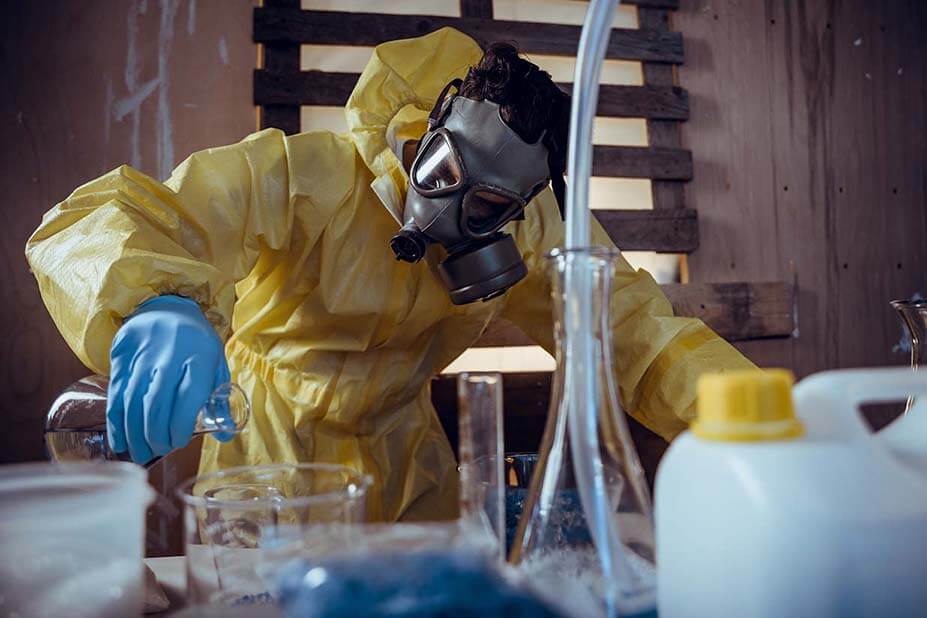
Support for Pre Employment Drug Testing
Failing a pre-employment drug test in Australia can be a setback, but it can also be an opportunity to seek support and make positive changes. By understanding the reasons behind drug testing and the steps to take after a failed test, candidates and employers can contribute to safer, healthier workplaces.
Safework Health recently carried out Wastewater Surveillance Testing at a mine site in New South Wales.
Read more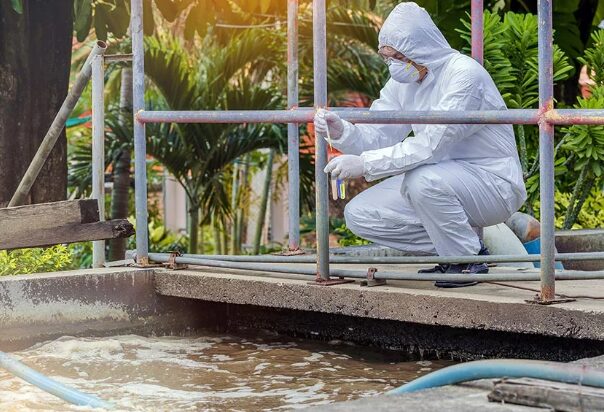
Introduction
Understanding substance abuse in the workplace is significant, especially in high-risk workplaces like mine sites and construction sites. An emerging method to understand illicit substance abuse in the workplace is to use wastewater testing. This method provides useful data on what drugs are being consumed by employees at these sites, which can lead to enhanced testing solutions and guide policy decisions, Safework Health recently completed wastewater surveillance testing in New South Wales for a client. This blog post will discuss what wastewater surveillance testing is, the benefits of wastewater testing, and a real-world case study conducted by Safework Health.
What is Wastewater Surveillance Testing?
Wastewater surveillance testing is a scientific method used to analyse wastewater to determine the presence of substances, such as illicit drugs. Wastewater testing is often conducted at the workplace by analysing sewage to gain insight into drug use at a site. Wastewater is usually conducted over a period of time to analyse drug usage and trends. It is a non-invasive way of determining if there is issue with illicit drug use on site. It is a highly efficient approach to gathering real-time evidence of substance abuse in the workplace.
Why is Wastewater Surveillance Testing Beneficial?
There are many reasons why companies decide to use wastewater testing, especially in workplace environments such as construction, mining and other industries where workplace safety is significant. Some of the key advantages of wastewater testing include:
- Data- Driven Decision Making: As wastewater testing gives insight into what drug employees are using, companies can tailor their drug and alcohol polices as well as provide education on the risks associated with drug use based on real-life data.
- Detection of Trends: Companies can identify emerging patterns of drug use and educate their staff on new drugs that can be extremely harmful, which may reduce the number of employees consuming drugs.
- Policy Validation: Wastewater testing helps confirm if a company needs to update their existing drug and alcohol policy. A company that regularly carries out wastewater testing could see if changes made to their policies are working.
- Privacy friendly: It is a non-invasive way to gather information on drug use at a site with quick results.
This testing method is particularly useful in industries where safety and fitness for work are critical, as it helps mitigate risks associated with substance use.
Case Study: Wastewater Surveillance Testing at a Mine Site in New South Wales
Background
Wastewater Testing provides invaluable information about drug use in an organisation and can assist in tailoring your current drug and alcohol policy. Safework Health recently carried out wastewater testing at a coal mine site in New South Wales to better understand the role illicit drug use plays in fitness for work at the site. The aim for the client was to validate the existing onsite testing program and to understand the impact of the findings and to compare them to data from similar regions and industries.
Findings
The site reported significant methamphetamine use, with 3–3.5% of the workforce identified as users of the illicit drug. Amphetamine use was observed at moderate to high levels, while cocaine usage was moderately high, equating to over 52 standard doses per 1,000 workers. Morphine/diacetylmorphine use was recorded at moderate levels, and oxazepam usage was detected at a low rate.
Recommendations
The HSE team should analyse data for correlations between drug use and rosters, continue wastewater monitoring, and implement randomised blanket testing. Urine screening should be considered for its extended and more favourable detection windows. Leadership support is needed for expanded testing and a targeted education campaign on drug risks, detection methods, and rehabilitation resources. Effectiveness will be evaluated via wastewater retesting in 6–12 months, with success defined by a significant reduction in drug use.
If you would like more information about Wastewater Surveillance Testing, please call us on 1300 795 227 or email us at [email protected]. Safework Health have carried out numerous wastewater surveillance testing for clients in the past, with accurate and fast results.
Safework Health recently carried out Wastewater Surveillance Testing at a mine site in New South Wales.
Read more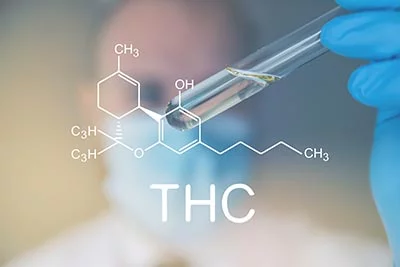
Drug Testing Cutoff Levels Australia
Drug testing cut-off levels in Australia determine the minimum concentration of a drug or its metabolites that must be present in a sample to produce a positive result. These levels ensure fairness and accuracy by distinguishing between recent drug use and trace amounts that could result from environmental exposure.
For employers conducting a drug test for a job, understanding these cutoff levels is important for maintaining a compliant and effective workplace drug testing policy and ensuring fairness and understanding during testing.
Cut-Off Levels for Urine Drug Testing in Australia
Urine drug testing is one of the most common methods for workplace testing. The cut-off levels for urine drug testing in Australia are set according to Australian Standards (AS/NZS 4308:2008). These standards help ensure consistency and reliability across all tests. A urine drug screen in Australia typically checks for substances such as:
- Cannabis (THC): 50 ng/mL
- Cocaine: 300 ng/mL
- Amphetamines: 300 ng/mL
- Methamphetamines: 300 ng/mL
- Opiates: 300 ng/mL
- Benzodiazepines: 200 ng/mL
Employers rely on these thresholds to avoid false positives and ensure that test results reflect actual substance use.
Why Drug Testing Cut-Off Levels Are Important
Cut-off levels are important in drug testing because they help balance accuracy with fairness. They prevent individuals from testing positive due to incidental exposure or minimal drug use that doesn’t impair performance. For instance, candidates undergoing a drug test for a job should not be penalised for trace amounts of substances that do not affect their ability to work safely.
How Do Cut-Off Levels Apply to Different Industries?
Industries like mining, construction, and transportation often have strict drug testing policies due to safety concerns. In these sectors, employees may need to complete assessments such as a coal board medical QLD, which includes drug testing. Understanding the drug testing cut-off levels in Australia helps employers enforce policies consistently while ensuring workplace safety.

Common Substances Tested and Their Cut-Off Levels
In a urine drug screen in Australia, each drug type has a specific detection window and cut-off level that determine how long the substance remains detectable in the body. Cannabis (THC) can typically be detected for several days after use, with a cut-off level of 50 ng/mL. Cocaine, on the other hand, has a shorter detection period of about 2 to 4 days and a standard cut-off level of 300 ng/mL.
Amphetamines and methamphetamines share a similar detection period of up to 3 days, with a cut-off level of 300 ng/mL. Opiates, also with a cut-off of 300 ng/mL, can be identified for around 3 days after use. Benzodiazepines vary depending on the type but can remain detectable for up to a week, with a typical cut-off level of 200 ng/mL.
Understanding these detection windows helps employers accurately interpret the results of a drug test for a job. Applying these standard cut-off levels ensures fairness and consistency in workplace drug screening, allowing businesses to make informed decisions while maintaining safety and compliance.
Factors That Can Influence Drug Testing Results
Several factors can impact drug testing results, including metabolism, hydration, and frequency of use. For instance, someone with a slow metabolism may have detectable drug levels for longer periods. It’s important for employers to consider these factors when interpreting results to ensure fairness. Testing providers must follow strict protocols to ensure the accuracy of results.
How Employers Use Drug Testing Cut-Ooff Levels in Australia
Employers use drug testing cut-off levels in Australia to maintain workplace safety and compliance. By adhering to established cut-off standards, they can:
- Ensure fair testing and avoid false positives caused by trace amounts of substances.
- Promote safety by identifying employees who may pose a risk due to substance use.
- Comply with regulations and follow legal requirements for workplace drug testing.
Employers who implement urine drug screen Australia procedures based on these standards can reduce the risk of workplace incidents and maintain a safer environment.

Best Practices for Employers Conducting Drug Tests
When conducting drug tests, employers should follow these best practices:
- Create Clear Policies: Develop and communicate clear drug testing policies.
- Use Accredited Providers: Use accredited testing providers to ensure accuracy.
- Offer Support Programs: Offer support such as education and drug and alcohol training for employees.
These practices ensure that drug testing programs are fair, compliant, and effective.
Ensuring Fair and Effective Drug Testing Policies
Understanding the cut-off levels for urine drug testing in Australia helps employers implement fair and effective drug testing policies. By following established standards, businesses can maintain workplace safety and compliance. Regular drug testing, combined with drug and alcohol training, promotes a healthier and safer work environment for all employees.
Safework Health recently carried out Wastewater Surveillance Testing at a mine site in New South Wales.
Read more
Screen Drug Test
Drug screenings are commonly used in pre-employment drug and alcohol testing in Australia. These tests are usually fast, providing results within minutes, making them ideal for workplaces where quick decision-making is important. However, drug testing is also used in pre-employment checks, especially if the initial screening indicates a positive result.
Here, we’ll go through the key differences between these types of drug tests, including when they are best used and how they can help improve workplace safety.
The Key Differences Between Drug Tests and Drug Screens
Simply put, a screen drug test is a preliminary process used to detect the presence of drugs in an individual’s system. On the other hand, a drug test is a more thorough and accurate analysis that involves laboratory testing to confirm the presence of drugs or their metabolites in the sample. Unlike a screen drug test, which is a quick check, a drug test uses advanced methods to provide definitive results.
Drug tests are useful when confirming positive screening results or when higher accuracy is required. Employers who require detailed results, such as those in safety-critical industries, often rely on types of drug tests like urine, blood, or hair follicle tests to ensure compliance with workplace safety policies.
Types of Drug Tests Used in the Workplace
Different types of drug tests serve various purposes in workplace safety and compliance. Understanding these different types of drug tests helps employers select the right method based on their workplace needs and safety requirements.

Some of the most common types include:
Urine Drug Tests: These are the most commonly used tests in workplaces for detecting recent drug use. They are often part of pre-employment drug and alcohol testing in Australia.
Blood Tests: These tests are highly accurate and detect current impairment levels, making them suitable for post-incident testing.
Hair Follicle Tests: These can detect drug use over an extended period, typically up to 90 days, and are used in industries that require detailed history checks.
Saliva Tests: These tests detect recent drug use and are easy to administer on-site. They are popular for random or post-incident testing.
When to Use a Drug Screen vs. a Drug Test
Employers use a screen drug test for initial testing because it is fast, affordable, and easy to administer. This makes it ideal for routine workplace checks, random testing, and initial screenings during the hiring process.
A drug test, on the other hand, is appropriate when accuracy is essential. Employers may use drug tests to confirm positive screening results, investigate workplace incidents, or ensure compliance with specific regulations like a Queensland coal board medical.
Accuracy and Reliability of Drug Screening and Testing
Drug screens offer rapid results but may sometimes produce false positives or negatives. Factors like medications, environmental contamination, and improper handling can impact accuracy. For this reason, employers often follow up with a more accurate drug test if a screen drug test shows a positive result.
Drug tests, especially those conducted in laboratories, are highly reliable. They provide detailed and legally defensible results, making them suitable for industries where safety is important and compliance with regulations is required.
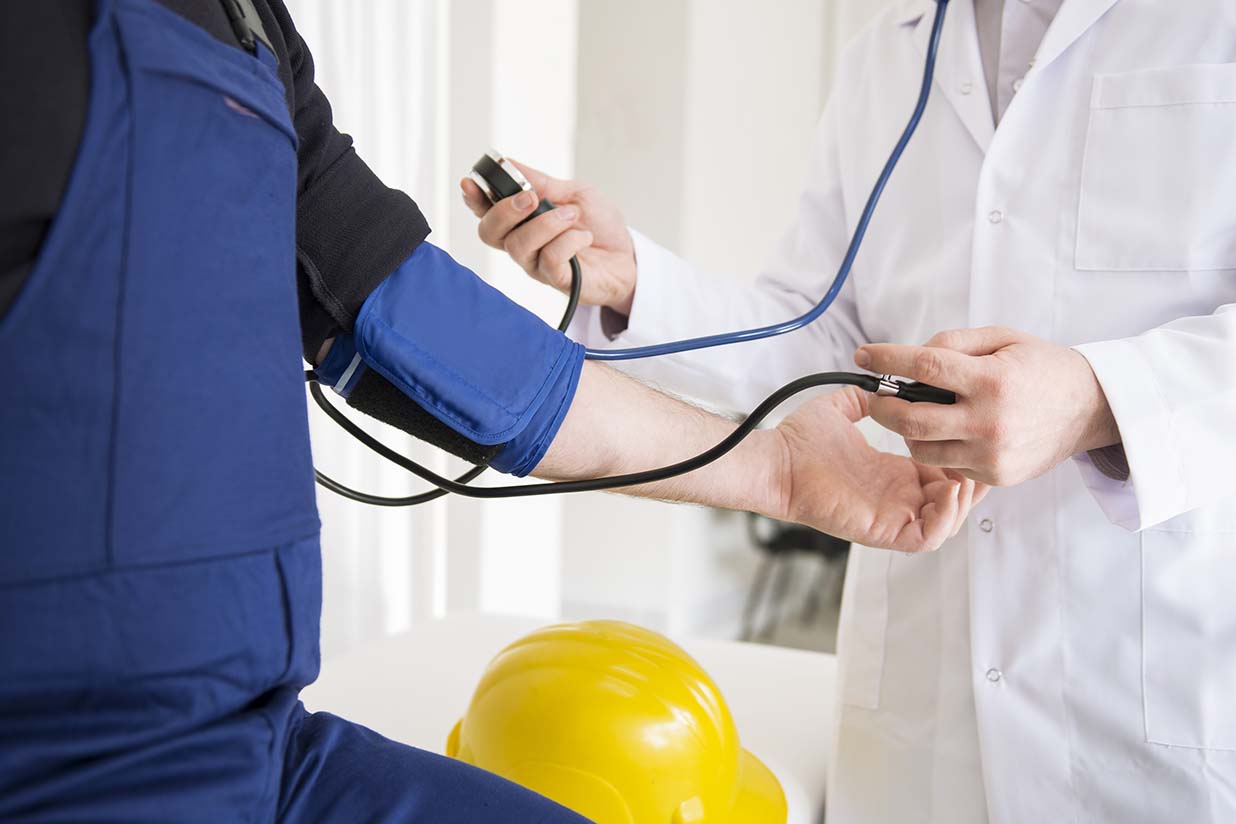
The Role of Drug Screening in Occupational Health Services
Drug screening and testing are essential components of comprehensive occupational health services. These processes help employers maintain a safe workplace, reduce the risk of accidents, and ensure compliance with health and safety regulations. Regular screening and testing, combined with clear workplace policies, promote a drug-free work environment.
Best Practices for Workplace Drug Testing
To implement effective drug testing policies, employers should:
- Use Clear Policies: Outline when and how drug screening and testing will occur.
- Train Staff: Ensure staff administering tests are properly trained to reduce errors.
- Offer Support Programs: Provide resources and occupational health services to support employees dealing with substance issues.
These best practices help ensure fairness, accuracy, and compliance with workplace regulations.
Choosing the Right Method for Your Workplace
Choosing between a screen drug test and a full drug test depends on your workplace needs. For quick and routine checks, a screening test is effective. For situations requiring detailed and confirmed results, a comprehensive drug test is the better choice. Both methods play an important role in maintaining workplace safety and ensuring compliance with industry regulations.
Safework Health recently carried out Wastewater Surveillance Testing at a mine site in New South Wales.
Read more
Instant Drug Test
An instant drug test provides employers with rapid results to identify the presence of drugs in an employee’s system. These tests typically use a urine sample and deliver results within minutes. Instant urine drug tests are popular for workplace screening because they are quick, cost-effective, and convenient. Employers often use them during a pre-employment drug test to ensure potential hires are fit for the role.
Understanding The Accuracy of Instant Urine Drug Tests
Instant urine drug tests are accurate when used correctly, but several factors can influence their reliability. Most instant drug screens have a high accuracy rate, often detecting commonly abused substances like cannabis, cocaine, amphetamines, and opiates. However, the quality of the test kit and the conditions under which the test is administered can impact the results – which is why it’s important for employers to follow best practices to ensure the accuracy of each instant drug screen.
Factors That Affect Instant Drug Test Accuracy
Sample Handling: Mishandling a urine sample can lead to inaccurate results. Following proper procedures helps maintain the integrity of the instant urine drug test.
Detection Windows: Different drugs remain in the system for varying lengths of time. An instant drug test may not detect substances that were used several days prior.
Environmental Contamination: Contaminated testing environments can affect results. Clean, controlled conditions will improve the accuracy of tests.
Medications and Substances: Certain prescription medications can trigger false positives. Candidates should disclose any medications before the test.
For the most reliable results, you can pair instant tests with laboratory confirmation when necessary.
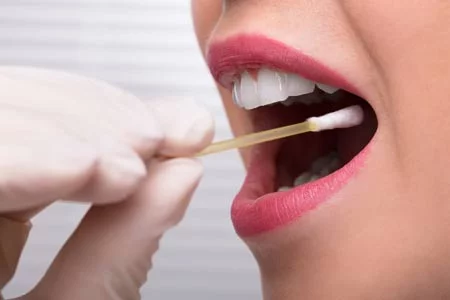
Instant Drug Tests vs. Lab-Based Tests
The main difference between these two tests is that instant drug tests offer speed and convenience, while lab-based tests generally provide a higher level of accuracy. Lab tests can detect a wider range of substances and provide more detailed results than instant tests, however, they take longer and are more expensive. Employers often use instant drug screens for initial testing and send positive samples to a lab for confirmation.
During a pre employment drug test, an instant urine drug test can help employers make timely hiring decisions. If there are concerns about accuracy, a follow-up lab test ensures the results are reliable.
The Benefits of Using Instant Drug Screens for Employers
Instant tests are particularly useful for industries that require regular drug screening, such as construction, transportation, and mining, thanks to several key benefits:
- Quick Results: Instant drug screens deliver results within minutes, allowing employers to act quickly.
- Cost-Effectiveness: Instant tests are less expensive than lab-based tests, making them suitable for routine testing.
- Convenience: Instant tests are easy to administer on-site, reducing downtime for employees.
Employers can conduct efficient urine drug screens, and Australian businesses can better maintain workplace safety.
Are There Limitations of Instant Drug Tests?
While instant drug tests offer many advantages, they also have limitations. Instant tests may produce false positives or negatives due to environmental factors, sample contamination, or medication use.
Employers can improve the accuracy and reliability of instant drug tests by following these best practices:
- Use High-Quality Test Kits: Reliable brands reduce the risk of inaccurate results.
- Train Staff: Ensure staff conducting tests are trained to follow proper procedures.
- Maintain Clear Policies: Develop policies that outline the testing process and consequences of positive results.
For highly sensitive roles, such as those involving safety-critical tasks, employers may prefer lab-based testing to confirm instant results.
When to Use Instant Urine Drug Tests
Instant urine drug tests are ideal for:
- Pre-employment screening to quickly verify that candidates meet workplace safety requirements.
- Random Testing to deter substance abuse by conducting unannounced tests.
- Post-incident testing to identify if drugs contributed to a workplace incident.
Employers who use instant tests appropriately can ensure a safer and more productive work environment. Incorporating drug and alcohol training also helps employees understand the importance of maintaining a drug-free workplace and the testing process.
Ensuring Workplace Safety with Instant Drug Screening
Instant drug screens are valuable tools for maintaining workplace safety and compliance. Employers can confidently use an instant urine drug test for quick and reliable screening while following up with lab confirmation when needed. Combining instant testing with drug and alcohol training helps reinforce a company’s commitment to a safe, drug-free workplace. Regular testing, including pre-employment drug tests, supports ongoing safety and productivity.
By implementing proper policies and procedures, employers can use instant drug tests effectively and fairly. For industries where safety is a priority, reliable screening methods like a urine drug screen and regular assessments ensure a healthier, safer workforce.
Pink Cocaine, or “Tusi,” is a perilous designer drug characterised by its unpredictable mixture of stimulants and sedatives, leading to serious health risks.
Read more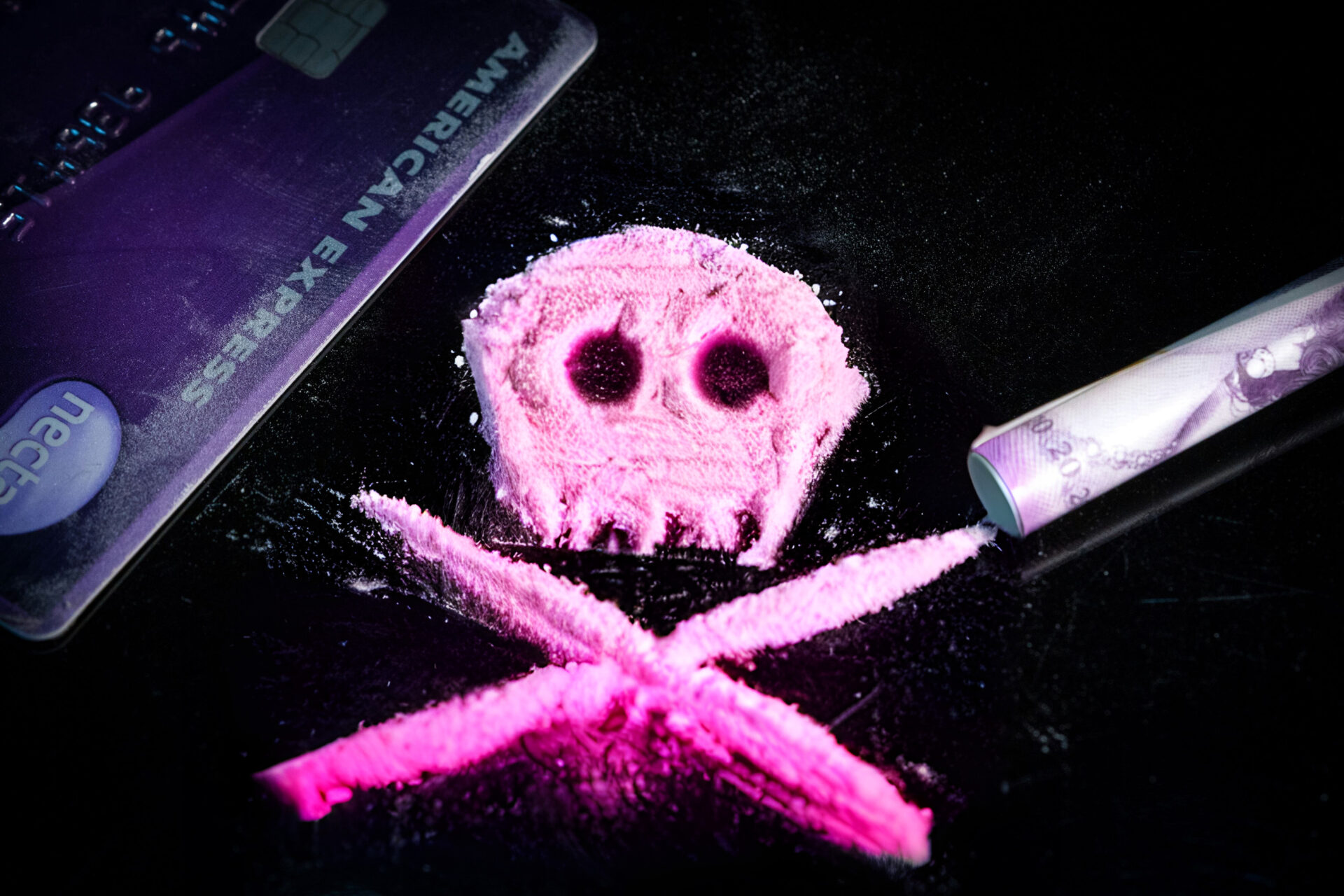
What is Pink Cocaine (Tusi)?
Pink Cocaine – also known as tusi or tusibi – was developed in Colombia in 2018 and promoted as an elite designer drug for the well-heeled. The street name ‘tusi’ refers to 2C-B which was sold in the ‘90’s as the recreational psychedelic ‘Nexus’. It acted as a combined stimulant and hallucinogen and was initially promoted as an alternative to XTC (MDMA). The drug’s popularity was short-lived, once users found it was a much weaker empathy-inducing agent than XTC, was remarkably painful to insufflate, and even at moderate doses was prone to inducing gastrointestinal problems, notably diarrhoea, nausea and flatulence.
Composition of Modern Pink Cocaine
Despite the name, the modern recreation rarely contains 2C-B and is a highly variable mixture of stimulants and sedatives, almost invariably ketamine with XTC, methamphetamine or cocaine and an opioid mixed with a pink food dye that gives it a pleasant strawberry odor. Other fillers are often included, including Benzodiazepines, New Psychoactive Drugs (such as N-BoMe ‘Bath salts’) and hallucinogens like LSD or mescaline.
The Effects and Duration of a Tusi High
Generally, the high peaks within 3 hours but may last up to 8 hours depending on composition. The drug induces excitement and euphoria, often raising sensory awareness. The side effects are likewise variable, invariably involving some level of dissociation from ketamine (which may lead to a frank psychotic break), short-term memory breaks, poor spatial memory, weird delusions and agitation.
Health Risks and Side Effects of Pink Cocaine
The drug mixture raises blood pressure and can lead to serious hypothermia. At higher doses, pink cocaine can induce seizures, and ketamine-associated abdominal cramping and bladder inflammation. Persistent effects include recurrent anxiety and depression as well as long-term recall problems.
Why Pink Cocaine is Especially Dangerous
The appeal of the drug is enhanced by the fact that many mixtures will not be detected with standard on-site screens. The stimulant/sedative combination is already dangerous. The uncertainty about exactly what is being taken makes it deadly.
Safework Health: A Leader In Workplace Drug Testing
If you require drug and alcohol testing solutions for your organisation, please feel free to contact us. Since 2012, Safework Health has delivered quality occupational health services aimed at keeping Australian workplaces safe and healthy.
At Safework Health, we provide comprehensive drug and alcohol testing services .These include urine drug testing, oral fluid (saliva) drug testing, alcohol testing and hair follicle drug testing.

Meet The Author
Dr Phil Tynan, National Toxicologist
Dr Tynan, a distinguished Toxicologist and a retired Clinical Biochemist Pathologist, brings a wealth of industry knowledge and experience. He is considered an expert in testing for substances of abuse.
Dr Tynan primarily supports Safework Health in developing new drug assays and procedures. He also offers guidance to clients and expert clinical advice as needed.
Dr Tynan is a published toxicologist in internationally peer-reviewed journals and is available to provide advice and expert opinion regarding results, expert witness testimony and appearances at courts and tribunal hearings.
It is very important to ensure that your organisation has a drug and alcohol testing policy in place to ensure safety on the road.
Read more
The Risks Associated with the Road Transportation Industry
The road transportation industry plays an integral part in the Australian economy, driving an estimated revenue of $70.3 billion in 2024. Although it is one of the most important industries in Australia, the safety risks involved in maintaining this industry is quite high. One of the main risks associated with the road transportation industry is the misuse of drugs and alcohol. Employers must ensure that their drivers operate to the highest of standards, to ensure the roads are safe for everyone that uses them. To achieve road safety, employers need to consider having a drug and alcohol policy in place and carry out regular drug and alcohol tests on their drivers.
Drug and Alcohol misuse on the road
Drug and alcohol use while driving in Australia is more common than you may think, with concerning statistics showing the extent of the problem. In Australia, 30% of fatal crashes involve drink driving, highlighting the risk posed by drivers who operate under the influence of alcohol. 20% of those that are killed in accidents, had a blood alcohol concentration (BAC) over the legal limit emphasising the growing concern of driving under the influence.
Another growing concern in Australia is driving under the influence of drugs. Between 10-30% of road fatalities are estimated to involve drivers under the influence of drugs. These substances not only impair reaction times and decision-making but also create unpredictable effects, particularly when combined with fatigue or stress. Another concerning statistic related to drug driving is that 25% of drivers killed in road crashes tested positive for drugs other than alcohol, showing that a substantial portion of fatalities is linked to illicit or prescription drugs that can impair driving ability.
The Impact of Substance Abuse in Road Transportation
For the road transportation industry, where drivers spend long hours behind the wheel, often in isolated or high-stress environments, the risks of drug and alcohol impairment are magnified. Drivers may turn to stimulants to stay awake or alcohol to unwind after long hours, but these substances can have dangerous consequences. When impaired drivers get behind the wheel, their ability to control their vehicle, react to hazards, and make sound decisions is compromised, endangering not only their lives but also those of other road users.
The Role of Drug and Alcohol Testing
Implementing robust drug and alcohol testing programs is a critical step for companies in the road transportation industry to protect their workforce and the public. Testing helps to identify impaired drivers before they can cause harm and serves as a deterrent to substance misuse. It also fosters a culture of safety, where drivers are more aware of their responsibilities and the consequences of risky behaviour.
At Safework Health, we provide comprehensive drug and alcohol testing services tailored to the unique needs of the road transportation industry. These include urine drug testing, oral fluid (saliva) drug testing, alcohol testing and hair follicle drug testing.
Our testing services help companies maintain compliance with legal requirements and industry regulations, and our 24/7 support ensures that testing can be conducted at any time, reducing downtime and ensuring minimal disruption to operations. We offer onsite drug and alcohol testing, in clinic drug and alcohol testing, pre-employment/return to work drug testing and post-incident/reasonable suspicion drug testing.
By investing in drug and alcohol testing, companies not only protect their drivers but also contribute to broader public safety, reducing the likelihood of tragedies that result from impaired driving
Safework Health recently carried out Wastewater Surveillance Testing at a mine site in New South Wales.
Read more
What To Do Before Urine Test
Understanding what to do before a urine test (and what not to do) is critical for employees to ensure accurate results. Employers play a key role in advising their workforce on proper preparation to avoid discrepancies or misunderstandings during drug test urine analysis.
1. Avoid Consuming Prohibited Substances
It might sound obvious, but it has to be said. Employees should avoid consuming any prohibited substances before a drug test. Employers should clearly communicate their drug and alcohol policy, including which substances are prohibited. This ensures employees are fully aware of the expectations and consequences of non-compliance. For instance, substances like cannabis, amphetamines, and cocaine are commonly screened during a drug test for a job and must be avoided.
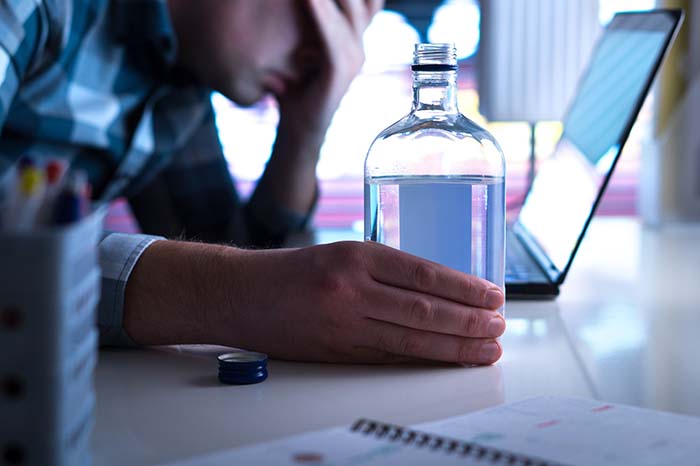
2. Do Not Consume Excessive Fluids
Drinking excessive amounts of water or other fluids to dilute urine can raise red flags during a drug test urine analysis. Diluted samples may require retesting, which can delay results and create complications. Employers should remind employees to maintain normal hydration levels without overcompensating.
3. Avoid Certain Medications and Supplements
Over-the-counter medications and supplements can sometimes trigger false positives in a drug test urine sample. Employees should disclose any medications they are currently taking to the testing administrator. Employers can advise employees to consult their healthcare providers to ensure that any prescribed medication will not interfere with the results.
4. Refrain from Last-Minute Attempts to Alter Results
Attempts to alter drug test results, such as using detox drinks or synthetic urine, are prohibited and can lead to serious consequences, so it’s important for employers to emphasise the importance of honesty and transparency during the testing process. Employees found tampering with test samples may face disciplinary action as outlined in the company’s drug and alcohol policy development in Australia.
5. Avoid Physical Overexertion
Strenuous physical activity can sometimes affect the chemical composition of urine, potentially impacting test results. Employers should encourage employees to avoid heavy exercise on the day of the test to ensure that samples aren’t affected by temporary physiological changes.
6. Refrain from Consuming Poppy Seeds or Certain Foods
Certain foods, such as poppy seeds, can produce false positives for opiates in a drug test urine sample. Employers should provide employees with a list of foods to avoid in the days leading up to the test to prevent unnecessary complications.

How Employers Can Support Employees in Preparing for a Drug Test
Employers should provide clear guidelines on what to do before a urine test to ensure accuracy and compliance. This includes sharing the company’s drug and alcohol policies and explaining the purpose and procedures of drug testing. Encouraging employees to seek clarification if they have questions or concerns promotes a transparent and supportive testing environment.
Providing information about what to avoid before an instant drug and alcohol test can help employees feel prepared and confident. This proactive approach reduces the likelihood of errors or misunderstandings, ensuring a smoother testing process for all parties involved.
Maintaining a Fair and Transparent Drug Testing Process
Employers must ensure that the testing process aligns with established policies and industry regulations. Regular reviews of drug and alcohol policies, combined with clear communication, foster a culture of compliance and safety. By advising employees on proper preparation and ensuring transparency in the testing process, employers can uphold the integrity of workplace drug testing programs.
Safework Health recently carried out Wastewater Surveillance Testing at a mine site in New South Wales.
Read more
Drug Testing Procedures and Protocols
Implementing drug testing procedures and protocols in the workplace is important for maintaining safety, productivity, and compliance. However, balancing these measures with employee privacy and consent can be complex. Clear guidelines, transparent communication, and adherence to legal standards are necessary for creating a fair and respectful workplace drug and alcohol policy.
Understanding Workplace Drug and Alcohol Policies
A well-defined workplace drug and alcohol policy sets the foundation for fair and effective drug testing. Your policy should outline the reasons for testing, the types of tests conducted, and the protocols followed. Employees should always be made aware of these procedures and their rights to ensure transparency and trust.
Employers should also specify situations where testing is required, such as incidents, random checks, or pre-employment drug and alcohol testing. This clarity helps your employees understand expectations and safeguards their privacy.
Consent in Workplace Drug and Alcohol Testing Procedures
Obtaining informed consent is a key aspect of implementing any workplace drug and alcohol testing procedure. Employees need to be aware of the testing methods, the substances being screened, and how the results will be used. Consent should always be documented, and employees should have the option to ask questions or seek clarification before agreeing to a test.
In cases such as occupational health assessment screenings or safety-related roles, employees should receive clear information on how consent is obtained and why the testing is necessary. This approach respects employee autonomy and ensures fairness.

Privacy Considerations in Drug Testing Procedures and Protocols
Privacy is a significant concern when conducting drug testing procedures and protocols. Employers must ensure that testing is carried out in a confidential manner and results should only be accessible to relevant personnel. Private information should always be stored securely.
For example, when conducting urine drug testing in Australia, standards require strict adherence to privacy protocols. This includes ensuring sample collection is discreet and that no unnecessary personnel are present during the process. Protecting privacy throughout the entire procedure is vital for maintaining trust and legal compliance.
Implementing Fair and Transparent Testing Procedures
Fairness is essential when rolling out a workplace drug and alcohol testing procedure. All employees should be subject to the same policies and processes without discrimination or bias. Random testing must be genuinely random, and all results should be processed according to the same standards.
Employers can enhance transparency by clearly communicating the drug testing procedures and protocols, including the types of tests used, such as urine drug testing. Providing employees with detailed information and a chance to ask questions can reduce anxiety and increase acceptance of the policy.
Training and Education on Drug Testing Policies
To ensure the successful implementation of a workplace drug and alcohol policy, employers should invest in training and education. Supervisors and managers need to understand the procedures, consent requirements, and privacy obligations and employees should also be informed about their rights, how testing works, and the reasons behind the policy.
Regular training sessions can clarify misconceptions, address concerns, and promote a culture of safety and respect. This education also ensures that everyone involved is aware of their responsibilities and the importance of maintaining privacy and consent.
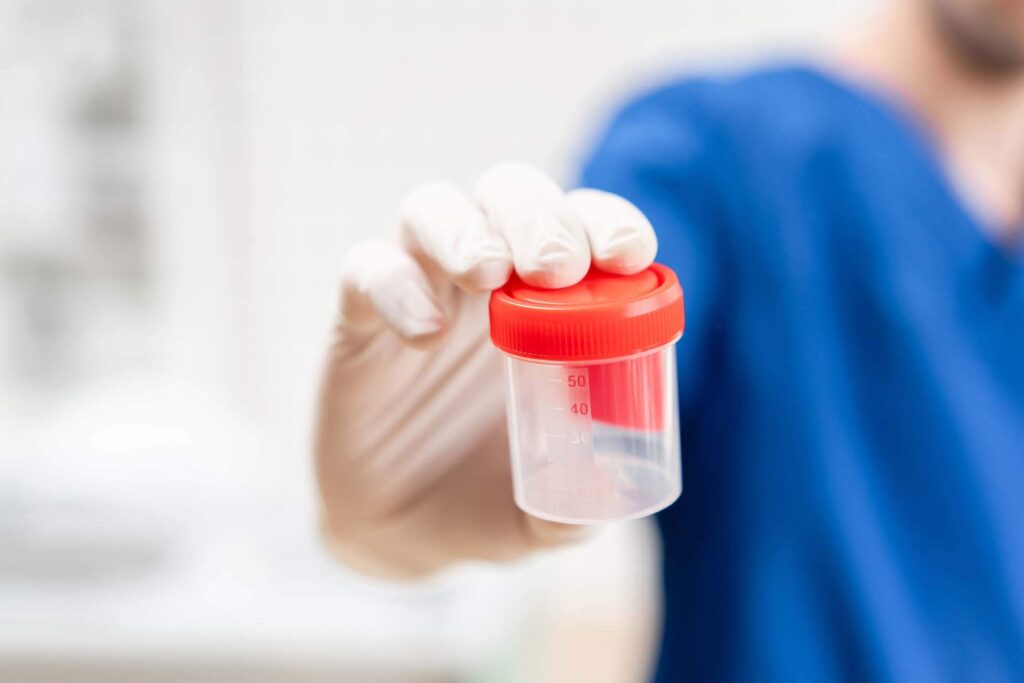
Maintaining Compliance with Legal Standards
Staying updated on guidelines provided by organisations such as WorkSafe Victoria can ensure compliance with Australian laws and regulations when implementing workplace drug and alcohol testing procedures. Ensuring that policies and practices align with these standards protects the business and employees.
Employers must also be prepared to handle challenges related to consent and privacy. Clear documentation, consistent application of the policy, and ongoing reviews of procedures help maintain compliance and fairness.
Balancing Safety and Privacy in the Workplace
A successful workplace drug and alcohol policy balances safety, privacy, and consent. By implementing clear procedures, obtaining informed consent, and protecting employee privacy, employers can create a safer and more respectful workplace. Transparent communication, fair application, and adherence to legal standards are key to managing these policies effectively.
For more information on occupational health assessment or pre-employment drug and alcohol testing, ensure your workplace policies are up-to-date and aligned with current Australian standards.


